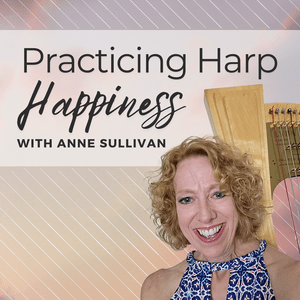I once had a student say this to me: “But it doesn’t work when I do it that way.” We were trying to fix a passage in a piece she was learning. When she played the passage for me, there was an obvious stumble spot, and I had a definite idea about what was wrong and how to fix it. But after a week of trying to implement my suggestion, she came back to me, saying that her old way, even though it wasn’t really working, worked better than mine and so she was sticking with her way. Please understand that the student didn’t doubt the solution I was offering. She had tried it, just as I had suggested. She had confidence in my ability to help her surmount this difficulty. The frustration for her was not just that the solution I offered didn’t work; it was that her old way was actually better for her, at least at that moment. At that point in our lesson, I could have responded with the all-time favorite response of music teachers everywhere - you have to give it some time. That would certainly have been a correct response in that it was true, but that doesn’t mean it would have been very helpful. But if I didn’t want to trot out that old standby answer, I had to provide a different one. It was clear to me what she needed to know. She needed to know why. This was years ago. I hadn’t published all the resources that I have now. I didn’t have the teaching experience that I have garnered in the years since then. But even back then, I was a good teacher, one who not only knew the right way to do things, but was skilled at seeing the underlying problem that a student needed to address. What I needed to learn, though, was how communicate my methodology, not a technique method necessarily, but how I knew my way of solving the problem would be better in the long run. When “just trust me on this,” or “because I said so” aren’t good enough answers, the better response lies in the reason, the explanation, and that requires a teacher to dig deeply into her own expertise. After all, it’s likely been a long while since we teachers asked for those explanations ourselves. We’re at a point where we simply know, and that’s good for us, but less helpful for our students. So today, I’m hoping to share with you the reasoning behind some of those potential “because this is the way it works” answers. Whether you’re a student or a teacher, or just a harpist who has an inquiring mind, I’m sure at least one of these will click for you. Links to things I think you might be interested in that were mentioned in the podcast episode: Sign up for the It's Not Working Webinar Join the Arpeggios with E.A.S.E. Quick Study Course Harpmastery.com Get involved in the show! Send your questions and suggestions for future podcast episodes to me at
[email protected] Looking for a transcript for this episode? Did you know that if you subscribe to this podcast on Apple Podcasts you will have access to their transcripts of each episode? LINKS NOT WORKING FOR YOU? FInd all the show resources here: https://www.harpmastery.com/blog/Episode-230


